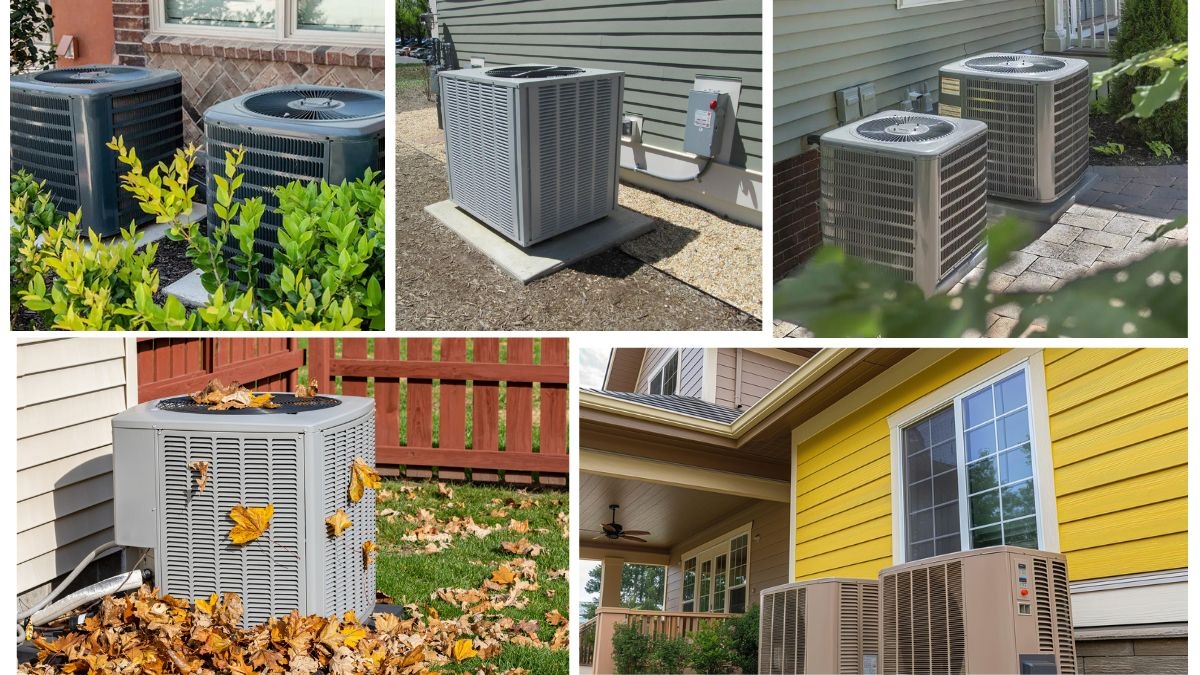When designing a garden around your home, it’s easy to focus solely on aesthetics—lush greenery, colorful blooms, and cozy seating areas. But there’s a crucial area that many homeowners neglect in their landscaping plans: the HVAC (Heating, Ventilation, and Air Conditioning) zone. This outdoor unit, typically placed beside or behind the house, plays a vital role in maintaining indoor comfort. However, its performance can be severely impacted by one seemingly harmless issue: debris buildup.
So, how often should you clear debris from HVAC zones in your garden? The answer depends on several factors, including your environment, the type of plants nearby, and seasonal changes. In this article, we’ll explore why debris poses a risk to your HVAC system, the best maintenance schedule, and practical steps to ensure your garden supports—not sabotages—your home’s heating and cooling.
Why Clearing Debris from HVAC Zones Matters
The outdoor HVAC unit is the heart of your system’s heat exchange process. It draws in air, extracts heat or cold, and expels it through the condenser coils and fan. This process depends on uninterrupted airflow and clean components.
When leaves, grass clippings, mulch, twigs, or pollen accumulate around the unit, they can:
- Clog air intakes and vents
- Reduce heat exchange efficiency
- Force the system to work harder
- Lead to overheating or freezing
- Cause damage to internal components
- Shorten the lifespan of the system
Even small amounts of debris, over time, can contribute to energy inefficiency and expensive repairs. That’s why regular, proactive debris removal is essential for any garden that includes HVAC zones.
Recommended Cleaning Frequency Based on Seasons
Let’s break down how often you should clean HVAC zones based on seasonal garden conditions.
Spring (Clean Every 2 Weeks)
Why Spring Requires Extra Attention:
- Trees and flowers release pollen and seed pods.
- Plants begin growing rapidly, dropping leaves or debris.
- Lawns are mowed frequently, leaving grass clippings.
- Spring storms may blow in twigs, branches, or mulch.
What to Do:
- Inspect and clean the HVAC area every 10–14 days.
- Trim fast-growing plants near the unit.
- Gently vacuum or hose off pollen from the unit’s exterior.
- Clear seed pods and fine debris from the fan grate.
Spring is a high-debris season. Frequent light cleaning prevents buildup and protects coils and fans from clogging.
Summer (Clean Weekly During Peak Months)
Why Summer Is Critical:
- The HVAC system is working the hardest during hot months.
- Gardens are in full bloom, and foliage is thick.
- Insects and pests may nest near the unit for shade.
- Watering and irrigation may splash dirt or mulch onto the base.
What to Do:
- Check the unit once a week, especially during heatwaves.
- Clear leaves, weeds, and grass within a 2–3 foot radius.
- Make sure irrigation systems don’t spray toward the unit.
- Brush off insect nests, spider webs, or pollen buildup.
Routine weekly maintenance ensures your system doesn’t overheat during its most demanding operational period.
Fall (Clean Every 3–5 Days During Leaf Drop)
Why Fall Requires Intensive Cleaning:
- Leaf shedding is at its peak.
- Windy conditions blow in extra debris.
- Moisture from dew or rain causes organic debris to stick to the unit.
- Animals may try to nest around the unit for warmth.
What to Do:
- During peak leaf drop, clean the area every 3–5 days.
- Rake leaves and dispose of them far from the HVAC zone.
- Remove sticks and acorns to avoid clogs or unit vibration.
- Install a leaf guard or breathable cover (only when the unit is off and during short inactive periods).
Fall is the highest risk season for clogging, so diligence here can prevent major wintertime issues.
Winter (Clean Monthly or After Snow/Ice Events)
Why Winter Maintenance Still Matters:
- Snow and ice can block vents or damage fins.
- Fallen branches from storms may crush or crowd the unit.
- Melting snow may cause standing water or freeze-thaw damage.
What to Do:
- Inspect the unit at least once per month, or after each snowstorm.
- Clear away snow, ice, or slush from the base and sides.
- Check that drainage around the unit is unobstructed.
- Avoid covering the unit tightly—use ventilated winter covers only if advised by the manufacturer.
Even when not in use, your HVAC unit needs breathing room in winter to avoid corrosion, rust, and freezing damage.
Other Factors That Influence Debris Frequency
Your local environment and garden style can affect how often you should clear HVAC debris. Consider these conditions:
1. Tree Canopy Density
Homes under dense trees will experience more leaf and twig fall. Increase cleaning frequency during windy or stormy weeks.
2. Proximity of Plants
If you have shrubs, ornamental grasses, or vines close to the unit, plan on weekly trimming and debris inspection.
3. Regional Climate
In dry, dusty regions, debris may include sand or dry foliage. In humid areas, mold and moss may develop. Adjust maintenance accordingly.
4. Type of HVAC System
Heat pumps used year-round will need more consistent cleaning compared to seasonal units.
Smart Landscaping Practices to Reduce Debris
Minimizing debris isn’t just about cleaning—it starts with intelligent garden design. Here’s how to prevent debris from accumulating in the first place:
Use Mulch Barriers
Use stone, rubber mulch, or gravel around the HVAC base to suppress weeds and prevent soil erosion. Avoid loose wood mulch which can easily blow or wash into the unit.
Plant with Purpose
Choose low-shedding, slow-growing plants near the HVAC zone:
- Dwarf evergreens
- Boxwood
- Lavender
- Yucca
Avoid deciduous trees with heavy leaf drop or trees with seed pods, such as birch, magnolia, or cottonwood.
Prune Regularly
Trim trees, vines, and bushes to maintain a 3-foot clearance zone and keep branches from dropping into the unit.
Install Wind Barriers
If your home is in a windy area, use decorative fencing or screens (with breathable gaps) to reduce debris from blowing into the HVAC space.
How to Properly Clean HVAC Zones
When you clean around your HVAC unit, it’s important to do so safely and effectively.
Step-by-Step Cleaning:
- Turn off the power to the unit at the main panel.
- Use a gloved hand or plastic rake to remove leaves, sticks, and debris.
- Gently vacuum the exterior fins using a soft brush attachment.
- Spray the unit lightly with a garden hose (avoid pressure washers).
- Remove weeds and check for animal nests or insects.
- Ensure no plants or objects are closer than 2 feet to the unit.
- Turn power back on and listen for unusual sounds or airflow restriction.
Regular cleaning not only improves efficiency but allows you to spot minor issues before they become expensive repairs.
When to Call a Professional
While homeowners can manage routine cleaning, some issues require HVAC technician expertise:
- Strange noises or weak airflow
- Signs of refrigerant leaks or mold
- Persistent clogs inside condenser coils
- Fan damage due to lodged debris
Schedule biannual HVAC inspections, ideally in spring and fall, for deep cleaning and professional diagnostics.
Conclusion: Clean HVAC Zones Equal a Healthier Garden and Home
In a well-maintained garden, your HVAC zone should never be an afterthought. Whether it’s falling leaves in autumn, pollen in spring, or mulch migration in summer, debris is a year-round threat to HVAC health. Regular cleaning ensures your unit can perform at peak efficiency, saving you money and avoiding breakdowns.
Key Takeaways:
- Clean every 1–2 weeks during high-debris seasons (spring and fall).
- Inspect monthly in winter or during dormant seasons.
- Use smart landscaping to minimize debris buildup.
- Always leave 2–3 feet of clearance around your HVAC unit.
- Combine DIY maintenance with professional service for best results.
By staying on top of debris management, you’re not only protecting your HVAC investment—you’re making your garden a true extension of your home’s comfort system.






Leave A Comment